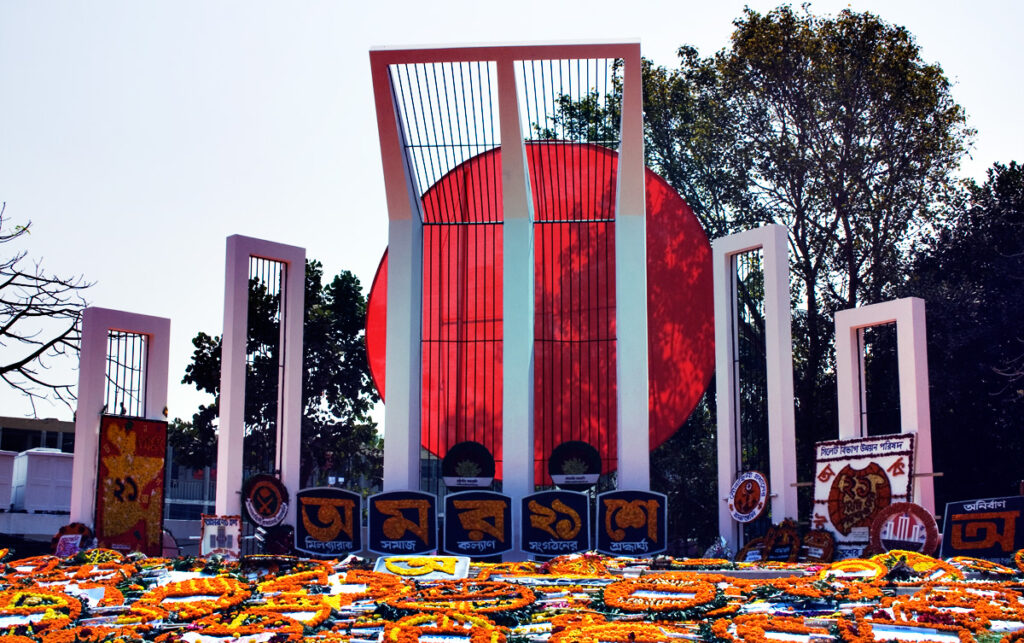Amor Ekushey and the International Mother Language Day

Amor Ekushey (February 21)
Amor Ekushey, meaning “Immortal 21st,” commemorates the Language Movement and the lives lost during protests in Dhaka. In 1952, the Pakistani government sought to impose Urdu as the sole national language of Pakistan, despite Bengali being the mother tongue of the majority in East Pakistan. Protests erupted, and police opened fire, killing students and activists who were peacefully demanding the right to use Bengali as an official language. These language martyrs are remembered every year on February 21 in Bangladesh, with memorials, ceremonies, and cultural programs.
Observances in Bangladesh:
- Shaheed Minar: People gather at the Shaheed Minar (Martyrs’ Monument) in Dhaka and other cities to pay their respects. The monument, originally built in 1952, symbolizes the sacrifices made for language rights.
- Ekushay Rally: Thousands participate in silent processions, barefoot and dressed in black and white, as a tribute to the martyrs.
- Cultural Programs: Throughout the day, schools, universities, and cultural institutions organize poetry readings, songs, and theatrical performances dedicated to the Bengali language and the cultural heritage of Bangladesh.
International Mother Language Day (February 21)
International Mother Language Day was established by UNESCO in 1999 to recognize and promote linguistic and cultural diversity worldwide. Observed globally on February 21, this day serves as a reminder of the importance of preserving languages and encourages multilingualism.
The idea for International Mother Language Day originated from Bangladesh’s desire to commemorate the 1952 Language Movement and honor linguistic diversity. The day highlights the significance of preserving and revitalizing indigenous languages that are at risk of extinction and promotes the right of people worldwide to communicate in their mother tongues.
Global Observances:
- Educational Programs: Schools and universities hold discussions, lectures, and exhibitions about endangered languages and the role of mother tongues in personal and cultural identity.
- Multicultural Events: In many countries, communities organize festivals celebrating different languages, showcasing traditional music, dances, and poetry from various cultures.
- UNESCO and Language Activism: UNESCO often holds special events, including conferences and art exhibitions, to address language issues, advocate for language preservation policies, and raise awareness about the loss of linguistic diversity.
Legacy
Amor Ekushey and International Mother Language Day not only honor those who sacrificed for linguistic rights in Bangladesh but also celebrate the importance of all languages as carriers of culture, heritage, and knowledge. Both observances reinforce the value of multilingualism, emphasizing that each language is a unique and irreplaceable facet of human expression and identity.
4o

